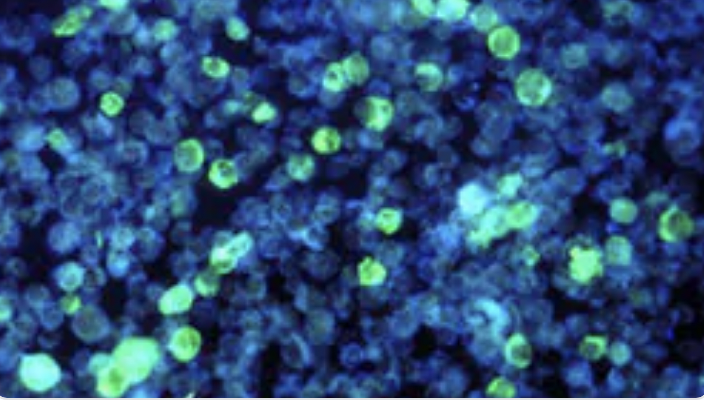
Hornet Therapeutics reports first data of EBV-triggered disease blocker
Hornet Therapeutics Ltd will use a US$5m seed financing to launch clinical tests of its IDO1 blocker HTX-201within the next 12 to 18 months to target post-transplant lymphoproliferative disease.
Hornet Therapeutics Ltd that was spun out in 2020 from the group of Christoph Hess (now University Cambridge) at University Basel, has published first data on its preclinical IDO1 blocker HTX-201, a cancer drung licenced from Kyowa Kirin. With a US5m seed funding led by 4BIO Capital, the British company now emerges from stealth mode with the goal to start clinical tests to confirm safety and the small molecule’s ability to block a target used by Epstein Barr virus to efficiently establish latent infection and causing post-transplant lymphoproliferative diseases (PTLD): IDO-1.
Indoleamine 2,3-dioxygenase 1 (IDO1), a known immunosuppressive enzyme that catalyzes the rate-limiting step in the oxidation of tryptophan (Trp) to kynurenine (Kyn), has received increasing attention as an attractive immunotherapeutic target for cancer therapy. Up to now,a dozen of small-molecule IDO1 inhibitors have entered clinical trials for the treatment of cancers.
New data published in Science last Friday specifically identifiy IDO-1-driven NAD biosynthesis as a metabolic pathway that EBV exploits to meet the bioenergetic demands of nascent infected B cells. Targeting this pathway with an IDO-1 inhibitor hindered B cell transformation and EBV-driven pathogenesis in vitro and in animal models in vivo, according to data published in Science. In transplant patients, IDO1 expression in EBV-infected B cells, and a serum signature of increased IDO1 activity, preceded development of lymphoma. In humanized mice infected with EBV, IDO1 inhibition reduced both viremia and lymphomagenesis. According to Hornat Therapeutics, this novel early intervention-approach with IDO-1 inhibition provides a therapeutic strategy to prevent EBV-associated diseases, including lymphomas.
Decades of conventional antiviral development have failed to deliver a small molecule compound capable of effectively and specifically targeting EBV. EBV is a major driver of post-transplantation lymphoproliferative diseases (PTLDs) and responsible for a significant proportion of organ loss in solid organ transplant patients, as well as a widely suspected driver of multiple sclerosis (MS). The groundbraking findings reported in Science point at IDO-1 inhibition as a potential treatment mechanism for pathologies related to EBV latency.
The company aims to first develop HTX-201 for the prevention of EBV-driven PTLD, where in high-risk solid organ transplant recipients this complication develops in up to 30% of patients. By intervening early with HTX-201, Hornet is looking to simplify the management of transplant recipients in the first year post-transplant, when the risk for PTLD and graft loss is highest. With around 80,000 solid organ transplantations in Europe and the US each year, there is a significant unmet need, which Hornet is seeking to address.
Based on the data now published in Science and with access to the clinically tested drug HTX-201, Hornet is poised to progress into Phase I/II trials in solid transplant populations within the next 18 months. Further targetes conditions include MS, infectious mononucleosis and long-COVID.
The company has an experienced team of experts in antiviral discovery and commercialisation, led by Dr Fraser Gray (formerly Vice President, Infectious Diseases, Worldwide Business Development at GlaxoSmithKline) and Professor Christoph Hess (Professor of Medicine at the University of Basel and Director of Experimental Medicine at the University of Cambridge).


